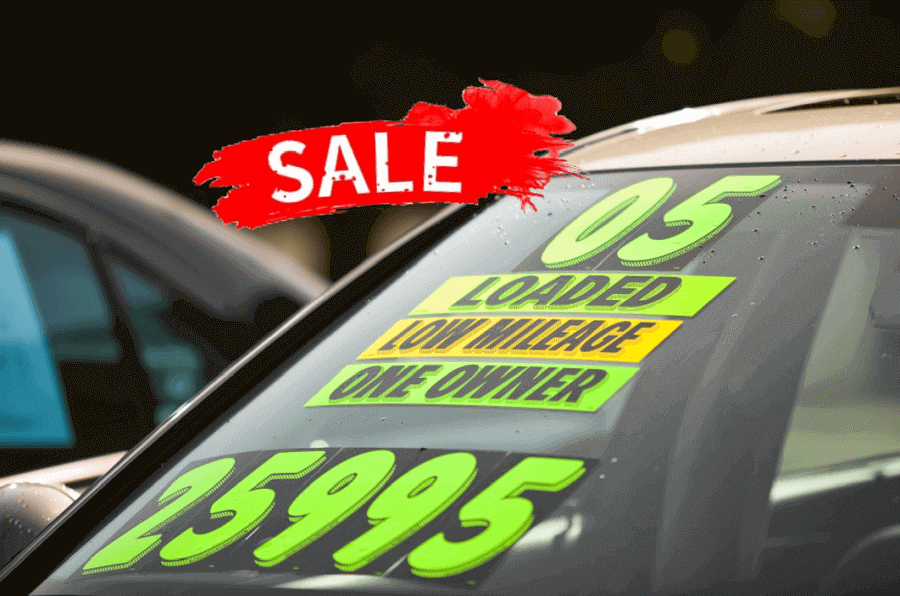In the used car market, nothing lasts forever. Prices always go up and down on a regular basis. Consumer preferences change and the market is redefined by emerging trends. All these point to the fact that one has to keep eyes and ears open for every update regarding average used car prices; that is the most effective way to get the most out of your car shopping experience.
Some key facts to consider:
- Awareness of the average used car prices across the states help with budget planning and keeping your finances safe and sound.
- Getting familiar with used car prices will help determine whether you are getting a good deal when shopping for a used car, find the best car for your budget, and get the most for your money.
- Understanding the average used car price can provide insight into the current economic conditions in the state and the current car market in the area. This can be beneficial for people looking to buy a used car, as it can help them make an informed decision and negotiate a better deal.
A car’s sticker price is defined by factors such as these:
- Popularity of models
- Location
- Materials
- Taxes
- Manufacturer’s suggested retail price
Brand-new cars may be uniformly priced, but an older version can appear with different price tags in different places
According to iSeeCars, the national average used car price is $33,582. We will use it as a baseline to compare how cheaper or expensive the average used car price per state is relative to the national average.
Based on this metric, we were able to determine the top 12 US states with the cheapest average used car prices as of this writing.
| State | Difference vs. national average |
| Vermont | 6.37% ($2139.17 less) |
| New Hampshire | 5.21% ($1749.62 less) |
| Ohio | 3.92% ($1316.41 less) |
| Hawaii | 3.58% ($1202.23 less) |
| Rhode Island | 2.37% ($795.89 less) |
| Delaware | 1.96% ($658.20 less) |
| Indiana | 1.93% ($648.13 less) |
| Connecticut | 1.76% ($591.04 less) |
| Pennsylvania | 1.45% ($486.93 less) |
| Massachusetts | 1.05% ($352.61 less) |
| New York | 1.01% ($339.17 less) |
| Maryland | 0.62% ($208.20 less) |
On the opposite corner, we have 12 states that command the priciest average used car prices in America. You may refer to this list if you live in one of these states and you plan to buy a used car in another state to save money.
| State | Difference vs. national average |
| Iowa | 6.45% ($2166.03 more) |
| California | 6.48% ($2176.11 more) |
| Louisiana | 6.88% ($2310.44 more) |
| Georgia | 7.24% ($2431.33 more) |
| Washington | 7.55% ($2535.44 more) |
| Arkansas | 8.22% ($2760.44 more) |
| Idaho | 10.45% ($3509.31 more) |
| South Dakota | 10.74% ($3606.70 more) |
| North Dakota | 12.47% ($4187.67 more) |
| Montana | 15.96% ($5359.68 more) |
| Alaska | 20.48% ($6877.59 more) |
| Wyoming | 23.29% ($7821.24 more) |
Now What?
Now that you are aware of the cheapest and most expensive average used car prices in the US, it is time to consider your approach to used car shopping. It is ideal to learn about the vehicle history of your chosen car. You can do this with either a VIN check or a license plate lookup. If you want more state-specific data, a dedicated state-specific lookup, like California license plate lookup, can definitely help especially if you live in that state.
Buy Used Cars And Save Money
Make the most of your vehicle history search by taking necessary steps to maximuze the value of a sale. Your knowledge of a car will be key to ensuring that you are not scammed off your hard-earned money, but there are other things that can be done to minimize your expenses.
Saving money when buying a used car can seem daunting, but with a few simple tips, you’ll be able to get the car of your dreams without breaking the bank.
Do your research – Research the model and make of car you are interested in, as well as the price range that is reasonable. Look online for reviews and compare prices with different dealerships. We recommend Edmunds for in-depth expert reviews of models you may like.
Use Kelley Blue Book – Kelley Blue Book is a great resource to use when determining the price of a used car. This will help you make sure you are getting the best price and that you are not overpaying.
Ask for a vehicle history report – A vehicle history report will provide you with important details about the car’s past, such as if it has been in an accident or if it has been recalled.
Test drive – Make sure to take the car for a test drive to get a feel for how it handles and how comfortable it is.
Ask for relevant records – Ask the seller for any relevant records on maintenance and DMV and make sure to inspect the vehicle thoroughly.
Get an independent inspection – Bringing in an independent mechanic to inspect the vehicle can help you identify any potential problems that can present a problem in the future.
Negotiate – Don’t be afraid to negotiate the price, as dealerships will often be willing to give you a better deal if you are willing to haggle.
Following these tips can help ensure you get the car you want at a price you can afford. With a little bit of research and negotiation, you’ll be able to drive away with the car of your dreams.

